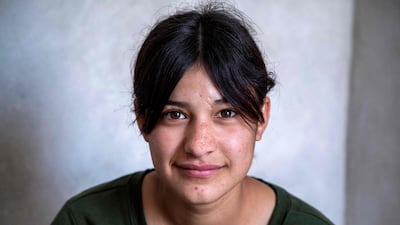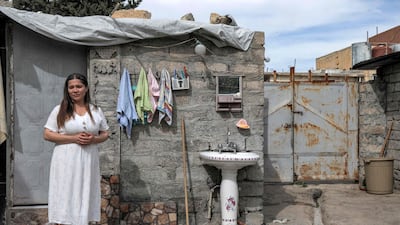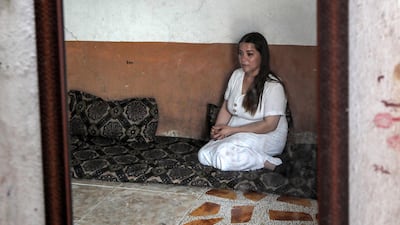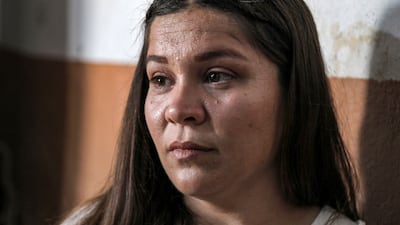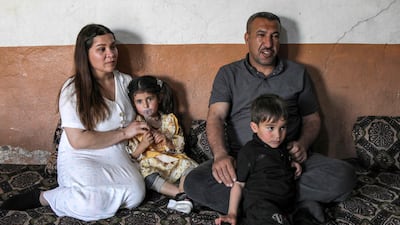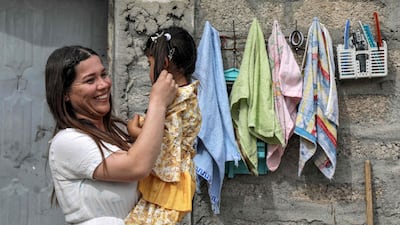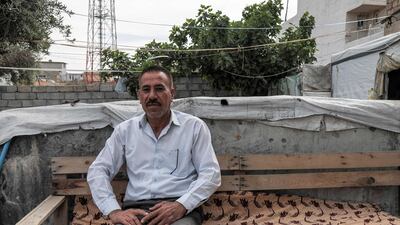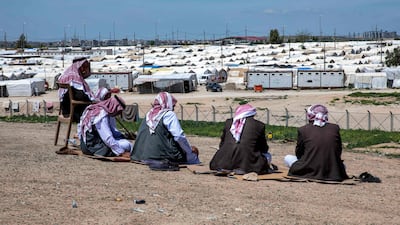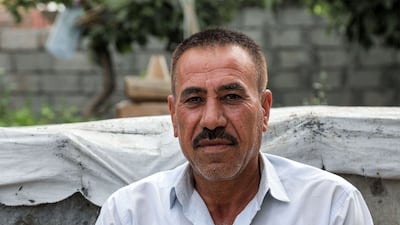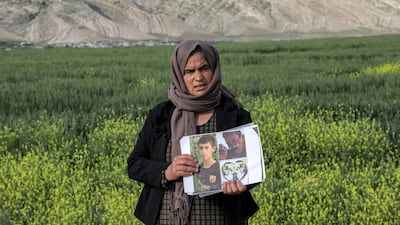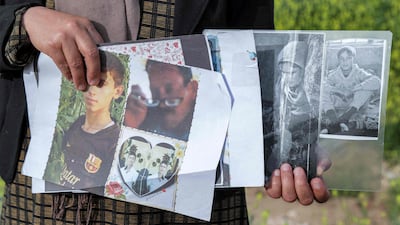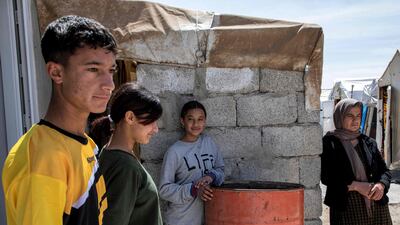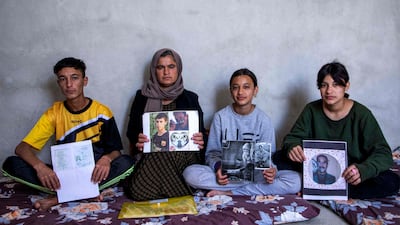The lawyer of one of the 10 defendants in the trial of an ISIS-claimed double suicide bombing in Brussels in 2016 has made the case that his client is complicit in war crimes.
Nicolas Cohen, representing Bilal El Makhouki, argued that the attacks that killed 32 and wounded hundreds was an extension of the conflict in Syria – a significant shift from the legal strategy of more high-profile defendants such as Salah Abdeslam.
The defendants' lawyers have in most cases requested that their clients be acquitted while minimising their involvement in the attacks.
“What happened is a war crime,” said Mr Cohen, speaking at the high-security court set up for Belgium's largest-ever trial in Nato's former headquarters north of the capital.
Belgium was at war with ISIS in Syria and Iraq at the time of the Brussels attacks, heightening the risk that its territory would also became a place of conflict, the lawyer added.
“ISIS chose not to attack military targets in Belgium but civilians – the exact definition of a war crime.”
The aim of such an argument is not to lessen El Makhouki's sentence, Mr Cohen told The National.
His client has been charged with participating in a terrorist organisation, which means he already risks life in prison. The sentence would be the same if he is found guilty of complicity in a war crime, he said.
The lawyer concluded by telling the jury that if they recognise that El Makhouki is guilty of a war crime instead of terrorism, they would be making “a decision that is in conformity with international law”.
A 'harsh man'
El Makhouki, who holds Belgian and Moroccan citizenship, is widely viewed as one of the most radical members of the group of men on trial in Brussels.
Wearing a light-blue polo shirt and glasses, he listened to his lawyer's arguments in silence.
Prosecutors allege that he helped the attackers in the weeks before the bombings, often visiting them at their flats. He is also accused of fabricating bombs and writing the bombers' wills.
They also argued that he was a “co-author” of the attacks, months after he confessed for the first time to the court that he had hid the killers’ weapons after the bombings.
He did not provide further details and the weapons were never found.
“Of all those who were not supposed to die on March 22, he is the most important,” said federal prosecutor Bernard Michel on June 5.
El Makhouki was close friends with one of the two suicide bombers, Najim Laachraoui, whom he fought side by side with in Homs, Syria, in the summer of 2013. El Makhouki left Belgium for Syria in October 2012 to join a rebel group that later merged with ISIS.
The country’s bloody civil war, which started in 2011, has since killed more than 300,000 people, according to the UN.
El Makhouki returned to Belgium after he was wounded by a sniper in December 2013. His right leg was partially amputated.
The prosecution alleges he strongly wished to return to Syria but was unable to due to complications with his leg. “My time in Syria was the best in my life, even if it was hard,” he told the court in April.
In February 2015, he was sentenced to five years in prison for participating in a terrorist organisation in a separate case known as Sharia4Belgium.
From May onwards, he was allowed to spend his jail time at home and leave his house during the day as long as he wore an electronic bracelet.
He returned to jail one week before the Brussels attacks because had been spending more time outside than he was allowed to.
El Makhouki “found a new meaning to life” once he became involved in preparing the attacks on the Brussels airport and metro, prosecutors said.
Speaking to the jury, Mr Cohen described his client as a “harsh man” who viewed himself as a fighter above all.
“He is harsh – like the war he took part in,” he said.
As he spoke, Mr Cohen picked up a book about Soviet fighters in Afghanistan – Zinky Boys, by Bielorussian Nobel Prize winner Svetlana Alksievitch.
Mr Cohen said he had showed the book to El Makhouki, who noticed the sepia picture on the cover depicting a Soviet soldier holding a weapon.
“He said: that’s a nice weapon. I would have liked to have one like that to fight over there,” according to Mr Cohen. “You see, that’s his world.”
The lawyer also referred to a discussion intercepted by Belgium’s State Security in Bruges prison between his client and Frenchman Mehdi Nemmouche, another ISIS member who shot four people dead at Brussels’s Jewish Museum in 2014.
He described the discussion between the two men as “an intimate moment during which they told each other their secrets”, as banter about who they knew and what they did while they were fighting in Syria.
“They were memories of war. That’s the reality they live in,” said Mr Cohen, who stressed his aim is not to justify war or terrorism but to explain why context is important to understand what his client did.
Mr Cohen said he hoped that the jury would understand that his arguments were “not indecent”.
He dismissed criticism from civil parties' lawyers alleging that he and his colleagues were defending ISIS.
“I hope you can tell the difference between a black flag [of ISIS] and our black robes,” he said.
Requests for acquittal
His approach contrasted with other lawyers, who started presenting their oral arguments on Tuesday.
Lawyers defending Salah Abdeslam asked for his acquittal and argued he had no active role in the preparation of the attacks because he was arrested four days before they took place.
Abdeslam was sentenced to life in prison by a Paris court last summer for his role in a series of attacks in the French capital in November 2015 that killed 130 people.
He has said he had a last-minute change of heart about detonating his suicide belt but the French court believes that the belt malfunctioned.
The Brussels and Paris attacks are linked to each other, as several defendants have appeared in both cases.
They told the Brussels court that they had planned to organise a second attack on Paris but acted in haste in Belgium instead after Abdeslam’s arrest in Brussels on March 15, 2016, alongside another defendant, Tunisian citizen Sofien Ayari.
The remaining defendants are Mohamed Abrini, Ali El Haddad Asufi, Herve Bayingana Muhirwa, and brothers Smail and Ibrahim Farisi.
Mr Asufi’s lawyers also asked for an acquittal on Wednesday.
The 10th defendant, Oussama Attar, was killed in Syria in 2017 in a drone attack by the international coalition against ISIS.
This represents further proof that the men acted in a “context of war”, said Mr Cohen.
A verdict is expected to be issued in July and sentences in September.

